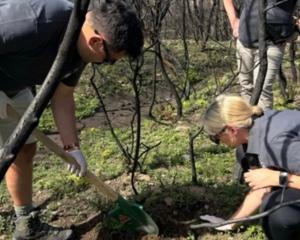Neill, filming in Canada, emailed the Otago Daily Times yesterday and said "a cup of tea" should be enough to resolve the issues.
There are fears filming for the two-film Lord of the Rings "prequel" could be lost to New Zealand.
Other countries, including Scotland, Ireland, Canada, Australia and the Czech Republic, have expressed interest.
Actors and producers are locked in an industrial dispute over employment terms and conditions on the planned two-part adaptation of the J. R. R. Tolkien book. Neill yesterday said the parties needed to communicate if the situation was to be resolved.
"I am dismayed to read how serious and how unnecessarily charged this dispute has become over the last few days," he said.
"We are seeing too much anger and hysteria all round and it doesn't help to have lots of people yelling from the sideline.
"Both parties, it seems to me, need to sit down, take a deep breath, and begin talking and - more importantly - listening, in the friendly and co-operative way we do things in the New Zealand film industry.
"And we all need to remember that [Sir] Peter Jackson and his outfit and the actors of New Zealand have been very good for each other over the years.
"Unless they wish to calm the situation or indeed mediate, our politicians should absolutely be quiet. The last thing we need here is for the situation to be politicised.
"Similarly, it is absurd that an essentially domestic discussion now has an international dimension.
"Everyone wants to see The Hobbit made, so the sooner we see calm and sweet reason return the better.
"This is not hard. Shaking hands and a cup of tea should do it."
Two senior ministers this week made themselves available to mediate in the dispute.
Economic Development Minister Gerry Brownlee and Arts and Culture Minister Chris Finlayson met Sir Peter and Fran Walsh on Monday morning.
The film's co-writer and co-producer, Philippa Boyens, warned it was far from certain that the film would be shot in New Zealand.
The dispute had damaged New Zealand's film reputation and "thrown doubt on how stable our industry is in terms of industrial relations," she told Radio New Zealand this week.












